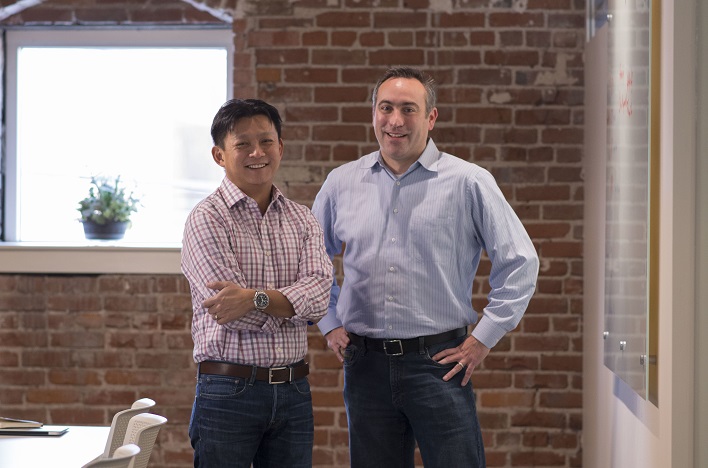Since it launched in 2012, Spotlight Analyst Relations has nearly quadrupled its employee headcount. The Kansas City firm helps clients—tech companies, mostly—make a winning impression on industry analysts.
“We’ll probably be over 20 (employees) by the end of this year,” co-founder Rick Nash said.
Nash and his business partner, Andrew Hsu, have grappled with a problem that a lot of fast-growing companies face. Namely, how do they add new people without losing Spotlight’s culture?
“How do we continue to sustain the personality, the culture that we have as we grow the company?” Hsu said.
The first step for Hsu and Nash: They thought about the exact qualities they prize in their team members. They talked about the importance of persistence, collaboration and honor.
And while those values were important, they didn’t completely “get” what makes Spotlight a great place to work. So Nash and Hsu hit upon the idea of “kavorka.”
For anybody who hasn’t watched every episode of “Seinfeld,” it’s an idea popularized by the episode “The Conversion,” wherein Kramer is diagnosed with having “kavorka,” a Latvian word that means “the lure of the animal”—an impossible level of natural charisma.
(Spoilers: Kramer eventually overcomes his crippling case of kavorka by wearing an assortment of terrible-smelling food.)
For Hsu and Nash, kavorka means having a charisma that allows job applicants to neatly mesh with Spotlight’s existing team and culture. People like you. They really like you.
“It’s harder for clients to fire you if they like hugging you,” Nash said.
There’s no scientific test (yet) for kavorka. So Spotlight devotes more time to the interview process. Every successful applicant has to pass through three levels: a coffee-shop meeting, a boardroom meeting at Spotlight’s offices and, finally, a more casual group outing—lunch or maybe a happy hour.
To be clear, job candidates must have the necessary skills to do the job in question. But Nash and Hsu also want to see a flash of humor, to get an inkling of what drives that particular person.
“I think that, through that process, I think you can see the real them a little bit more,” Hsu said.
One of the favorite questions the Spotlight guys like to ask: “What do you want to be great at?”
It’s kind of a funny question, Nash said, “but it’s really telling.” He and Hsu want to make sure anyone they hire has, at some point, had the ability to strive for greatness.
If you’ve never wanted to be great before, Nash said, “the odds of you wanting to be great here are pretty slim.”

